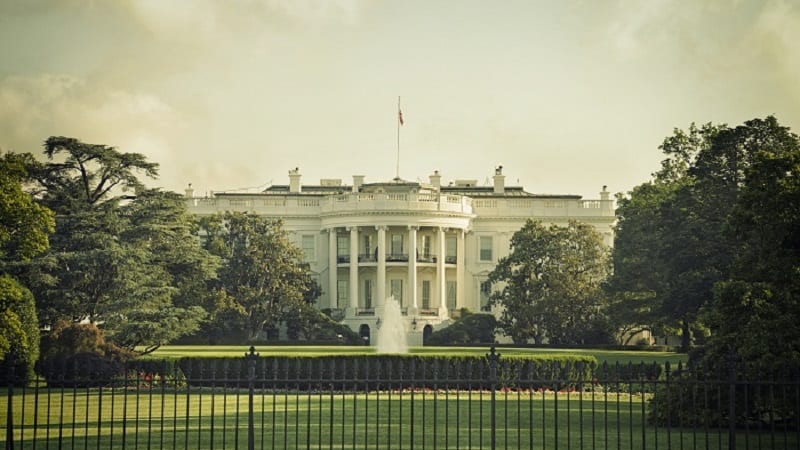Despite muted reaction from markets the day after the midterms, investors are predicting a gridlocked Congress will be good for risk assets and could relieve some of the pressure from US treasuries and emerging market currencies.
The Democrats took back control of the House of Representatives in the midterm elections, a move which will allow them to block much of Donald Trump’s legislative agenda and could lead to an influx of investigations into the president’s administration.
The party needed a net gain of 23 seats to break Republican’s eight-year stronghold on the House. By Wednesday morning they had picked up 26.
“Without a House majority, Trump’s legislative agenda is dead in the water,” said Rathbones head of asset allocation research Ed Smith. “So possibly no further tax cuts, no big cuts to Medicaid or food stamps, no further repeal of Obamacare.”
But Democrats did not ride the ‘Blue Wave’ to overtake the Senate from Republicans who gained an extra two seats, taking their total senators to 51 versus the Democrats’ 45. The race in the upper chambers was always going to be an uphill climb for the Democrats who needed to defend 26 seats versus Republican’s nine and flip two seats to gain control.
Muted markets
The outcome of a split Congress had little impact on global markets on Wednesday.
“After a run of elections where polls and forecasts proved wrong, we finally have one go-to plan so it’s no surprise that market reaction is muted,” said David Roberts, co-manager of the Liontrust Strategic Bond fund.
Asian stock markets wobbled the morning after the election. Both the Topix and Shanghai Composite were down less than 1% each at 1652 and 2641 respectively.
But the FTSE 100 and Euro Stoxx were largely unaffected by the prospect of a gridlocked Congress. The FTSE 100 rose 1.31% on Wednesday morning as the Euro Stoxx climbed 1.3%.
Fleeting fiscal reform
On Wednesday investors were keen to point out that historically gridlock has been positive for equity markets.
“Looking back through 1928, the S&P 500 index has delivered average annual returns in the double digits during years when Democrats and Republicans shared control of Congress,” noted Scott Krauthamer, global head equity product management at AllianceBernstein.
Krauthamer singled out healthcare stocks as the most likely beneficiaries of the divided government, noting that it will be difficult for Trump to pass major changes to the Affordable Care Act.
But he said further fiscal spending now looks less likely, despite both parties expressing a desire to address America’s crumbling infrastructure.
“Democrats may decide to promote infrastructure spending, an initiative that Trump once also cited as a priority,” said Krauthamer. “But it’s not clear that Democrats and Trump will be able to work together, nor is it certain there will be bipartisan appetite for another burst of fiscal stimulus so soon after a 2018 tax reform package that’s estimated to add some $1.5trn to the budget deficit by 2027.”
But he added “static fiscal policy should relieve a source of upward pressure on long-term treasury yields”.
Roberts agreed that the news should be “a small positive for US sovereign bonds” and “OK, if not great” for risk assets from equity to high yield debt.
“Thankfully, within our strategic funds we had added a few US treasuries – and we’ve started to sell already,” he said.
Green light for EM?
Jan Dehn, head of research at Ashmore Group, hailed the result as a “favourable outcome” for emerging markets. “The green light for EM local markets just got significantly greener,” said Dehn.
The biggest implication for the asset class following the midterms is that the second of three major risks, which also included the Brazilian election, that have dissuaded investors from parking money in emerging markets is now over, said Dehn.
“The third and final risk this year is position squaring, which typically occurs towards year-end, but which has no lasting or fundamental implications,” he said.
Dehn added that the prospect of Democrats pursuing investigations into the president and his business dealings and the lower likelihood of large fiscal spending should weigh on the dollar and support EM currencies.
But Krauthamer said a change of leadership in the House will do little to curb Trump’s trade policies and the tensions they’ve caused, noting that Congress has delegated much of its trade authority to the executive branch.
“If the US and China were to reach a deal to end their trade dispute, Congress would be required to vote on it. But in the absence of a formal agreement, trade policy is up to the president.”










